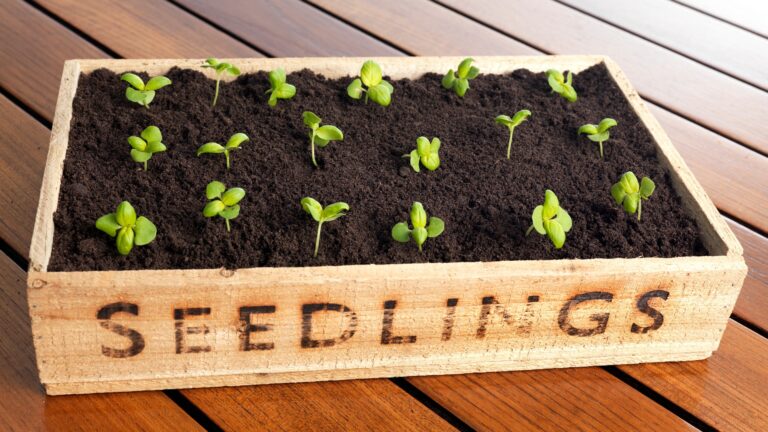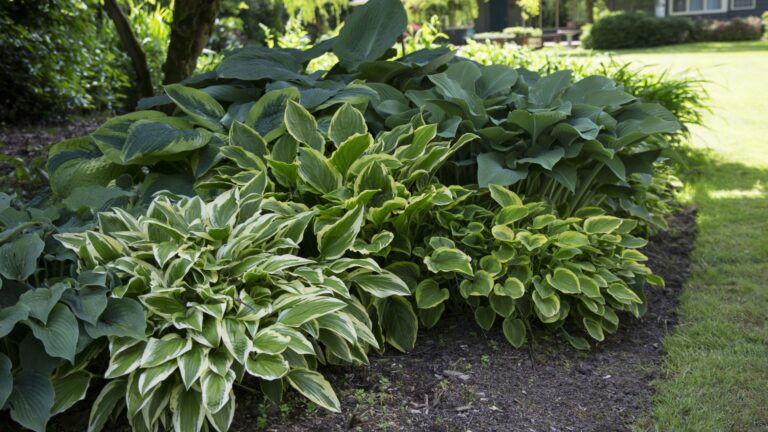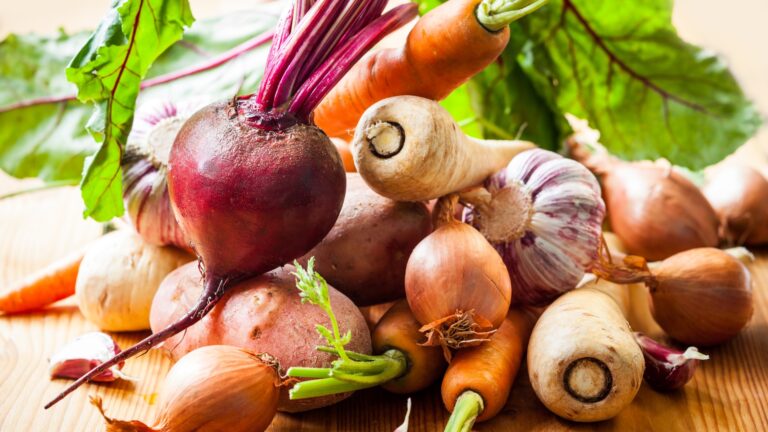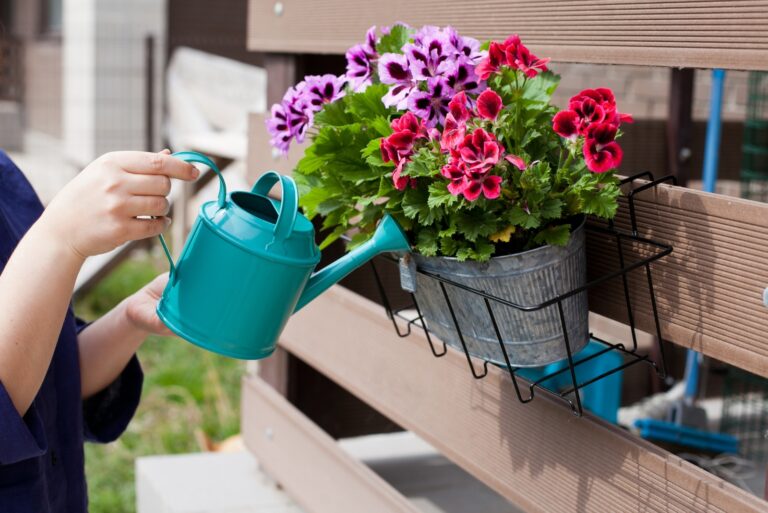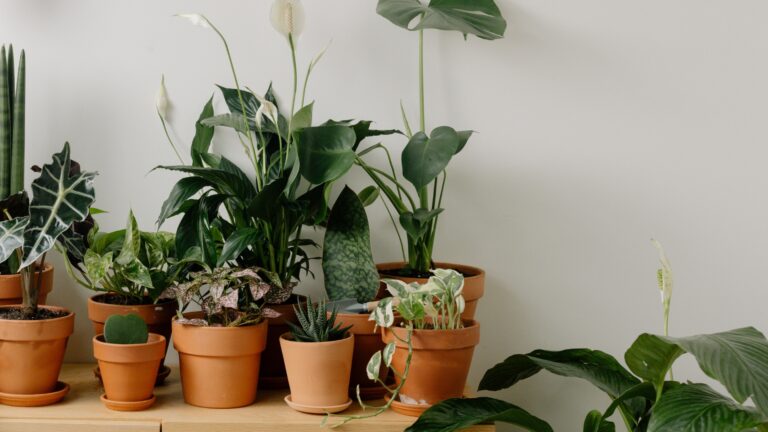20 Plastic Alternatives In The Garden (Plus Even More Extra Eco-Friendly Alternatives)

Gardening without plastic? Oh, absolutely! As a garden lover, I’ve swapped out plastic for some seriously cool eco-friendly alternatives that work wonders.
I used to be obsessed with those plastic plant pots, but now I swear by terracotta and bamboo. Plus, they make my garden look so much classier!
I even ditched plastic mulch for paper and hemp options, and let me tell you, my plants are thriving. Every change feels like a small victory for the planet.
Come join me as I share the fun, practical, and sustainable alternatives that make my garden greener and more stylish, one step at a time!
1. Bamboo Stakes
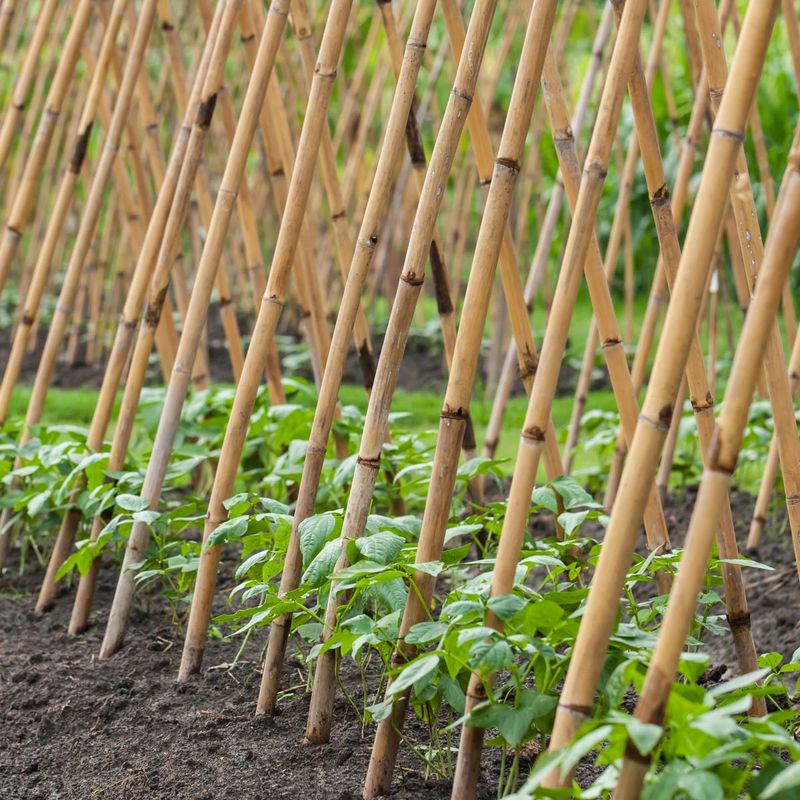
Staking plants is a must for many gardeners. Bamboo stakes come to the rescue as a fantastic alternative to plastic ones. They are not only sturdy but also blend perfectly with the garden’s aesthetic.
Plus, unlike plastic, bamboo is biodegradable, making it an eco-friendly choice that won’t clutter landfills. These stakes are surprisingly strong and can support even the most demanding plants.
With bamboo, your garden will look classy and environmentally conscious, all while keeping those plants standing tall.
2. Cloth Pots
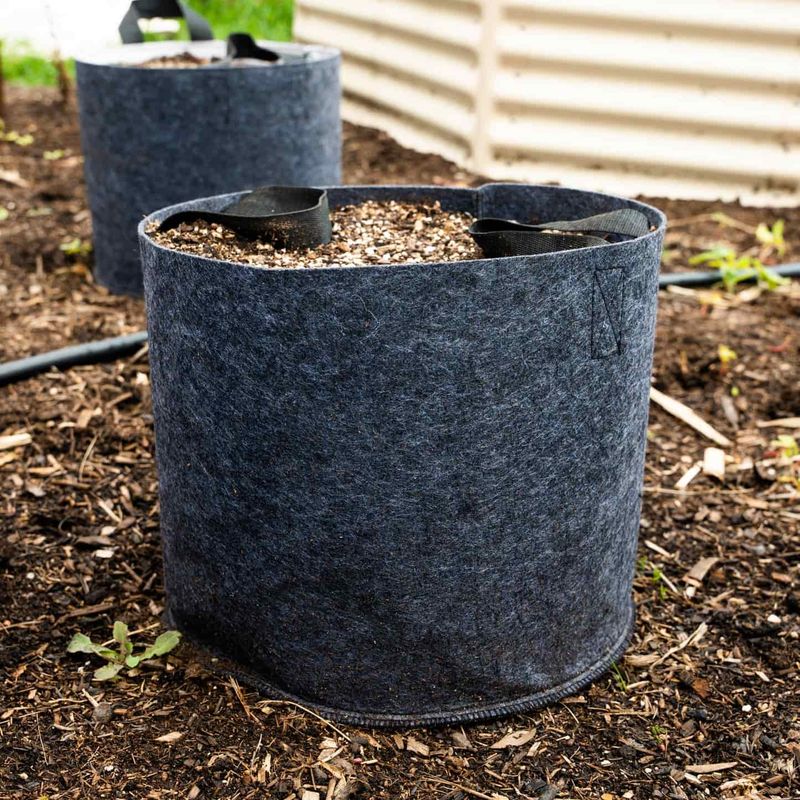
When it comes to potting plants, cloth pots are a game-changer. They are breathable, allowing roots to grow well and avoid root-bound issues.
Unlike their plastic counterparts, cloth pots help regulate temperature and drainage, making them ideal for healthy plant growth. They’re also lightweight and easy to transport, which is a big plus.
In the end, choosing cloth pots means opting for sustainability without sacrificing functionality. It’s a win-win for me and my garden!
3. Paper Mulch
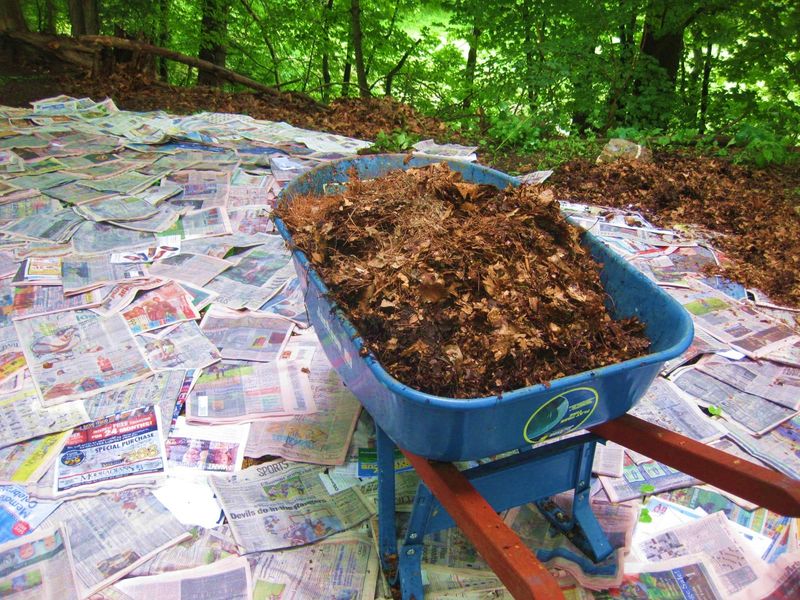
Mulching is essential for moisture retention and weed control. Paper mulch is recyclable, breaking down naturally and enriching the soil.
Unlike plastic mulches, it doesn’t create a barrier that hinders air and water exchange. It’s a more breathable option that still keeps weeds at bay and moisture where it belongs.
What’s really astonishing is that it’s made from recycled paper, giving it a second life. It’s practical and a friend to the environment, making it an obvious choice.
4. Coconut Coir
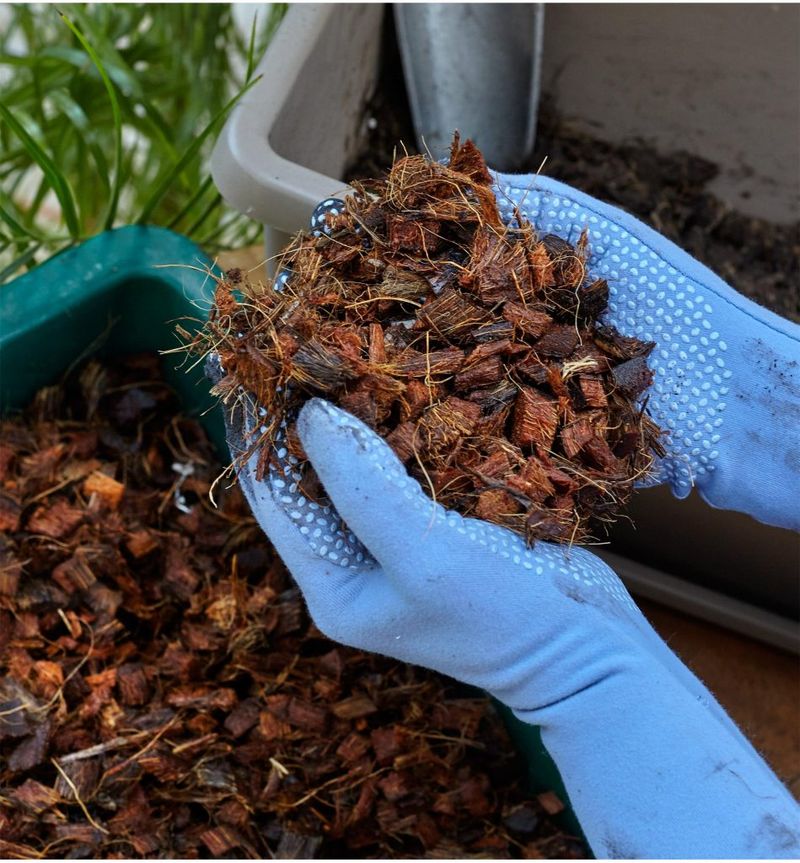
Looking for a substitute for peat moss? Coconut coir is the answer. Derived from coconut husks, this material is renewable and much more sustainable.
It retains water impressively, providing superior moisture control for plants. Unlike peat, coconut coir is more environmentally friendly and supports better root growth.
It’s astonishing how something so simple can make such a positive impact. I’ve found it to be a fantastic soil amendment that doesn’t compromise on performance.
5. Wooden Plant Markers
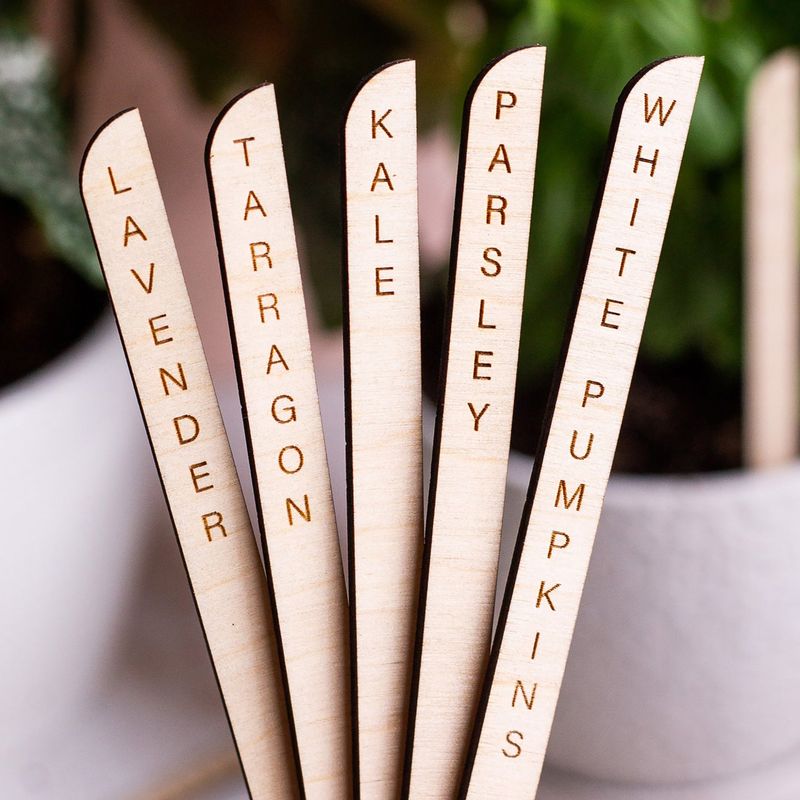
Anyone else struggle to remember what they planted where? Wooden plant markers save the day! They’re a rustic and eco-friendly alternative to plastic markers, adding a touch of charm to any garden.
You can easily write on them with a pencil or marker, and they’re biodegradable. They decompose naturally, so there’s no waste left behind.
I love the natural look they give to my plant beds. Plus, they make my planting area look well-organized and neat.
6. Biodegradable Seed Pots
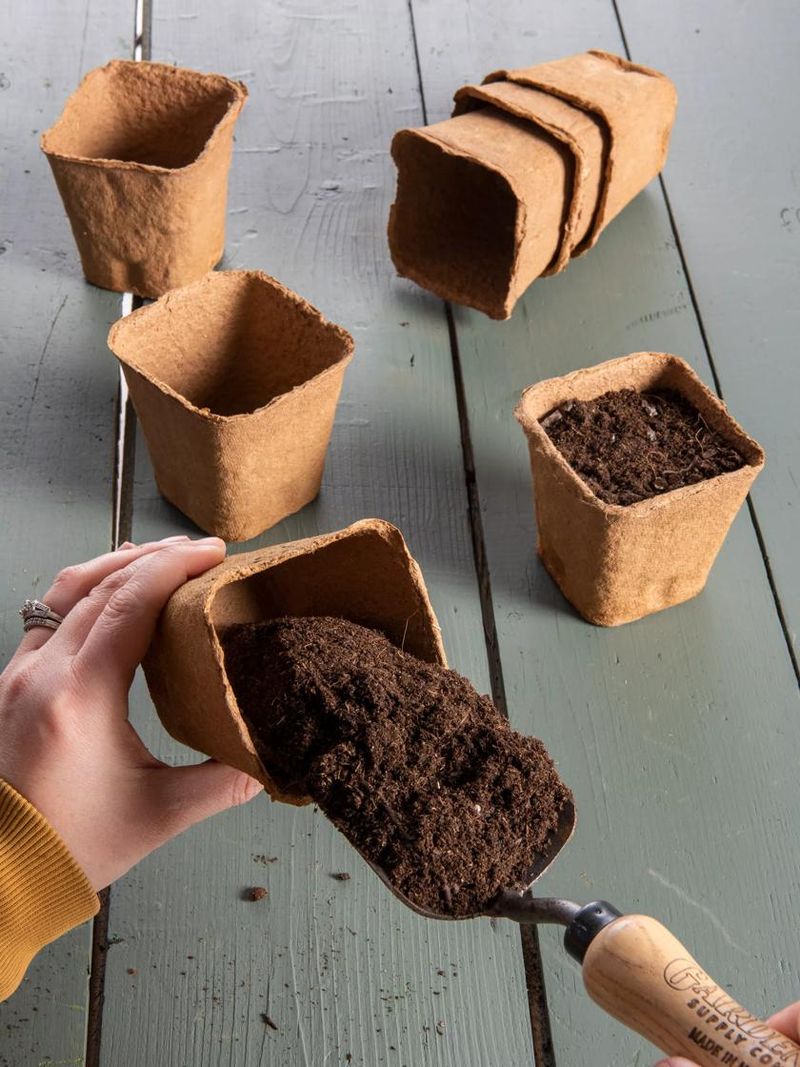
Starting seeds can be a delicate task. Biodegradable seed pots make it easier and more eco-conscious. These pots break down in the soil, reducing waste and eliminating the need for plastic pots.
They’re perfect for transplanting because they don’t disturb the roots, allowing seeds to grow into strong plants.
They’re not only practical but also kind to the planet, which is something we can all feel good about. Switching to these pots was a smart move for my gardening ventures.
7. Glass Watering Globes
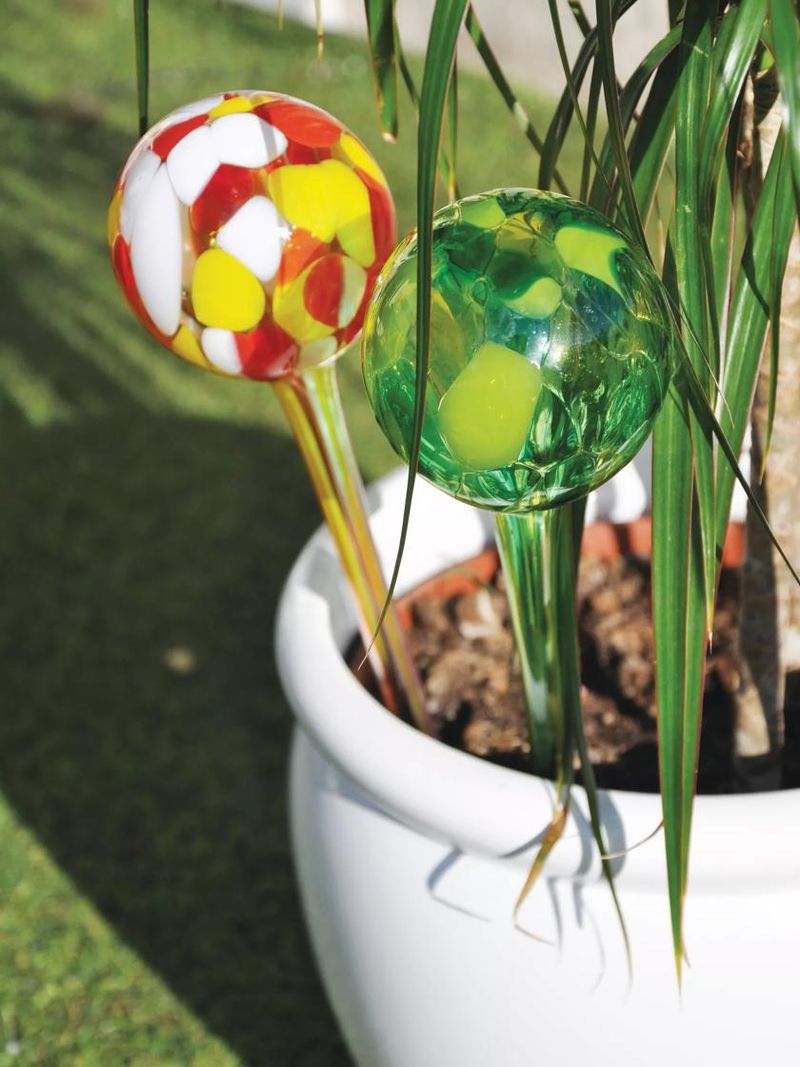
Watering can feel like a guessing game at times, but glass watering globes simplify everything. These handy devices slowly release water into the soil, keeping plants hydrated.
Unlike plastic options, glass globes are reusable and add a touch of art to the garden. They are also transparent, allowing you to see when it’s time for a refill.
With a variety of designs available, they serve their purpose while looking fancy. Who knew watering could be this stylish?
8. Metal Plant Supports
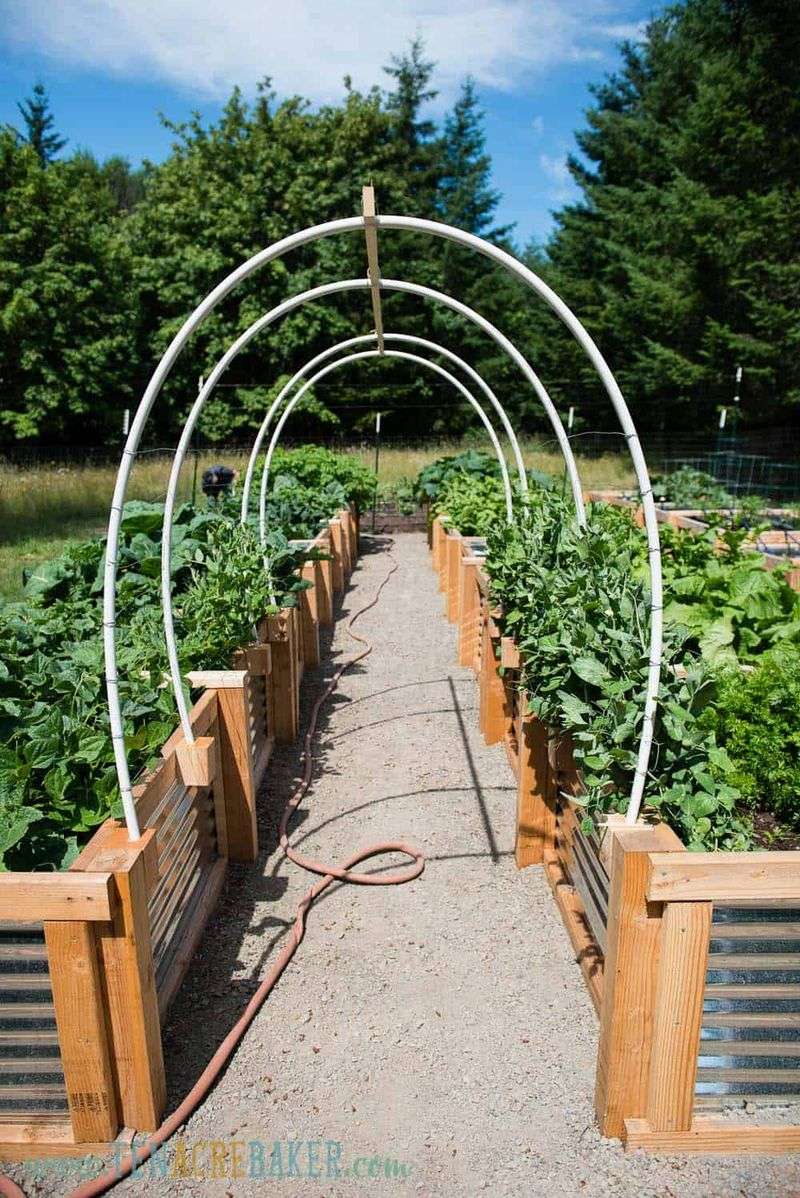
Ever had plants that just won’t stay upright? Metal plant supports come to the rescue! They’re incredibly durable and offer a great alternative to plastic supports.
Why choose metal over plastic? It’s simple: longevity and strength. Metal supports can withstand weather and weight, providing reliable support season after season.
Plus, they look neat and add a touch of elegance to the garden. What’s not to love about that combination of functionality and style?
9. Stone or Clay Garden Edging
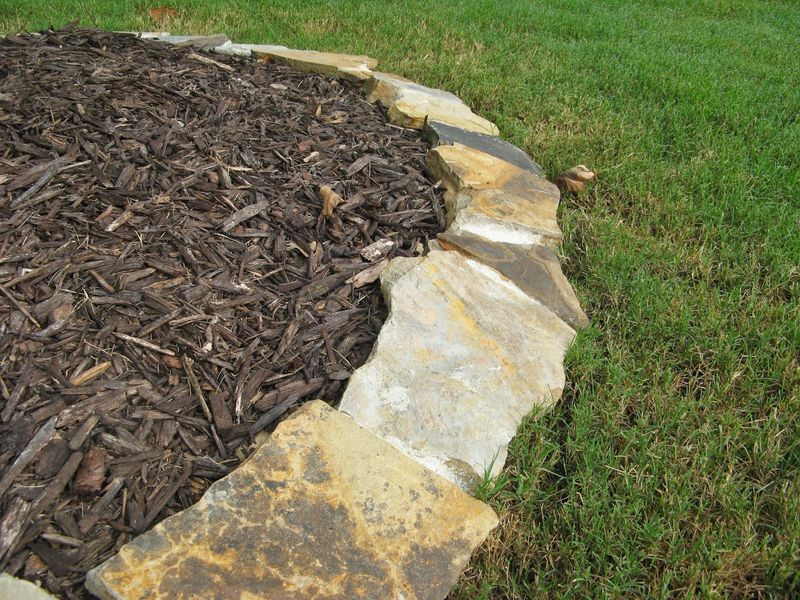
Defining garden spaces is a breeze with stone or clay edging. Unlike plastic, these materials merge seamlessly with the garden’s natural elements.
They’re sturdy and provide a clear, attractive boundary that doesn’t degrade quickly. Stone and clay are both timeless, offering a classy touch to any garden design.
They’re also incredibly durable, standing up to the elements without losing their charm. I appreciate how they enhance my garden’s aesthetic while keeping everything neat and tidy.
10. Natural Fiber Twine
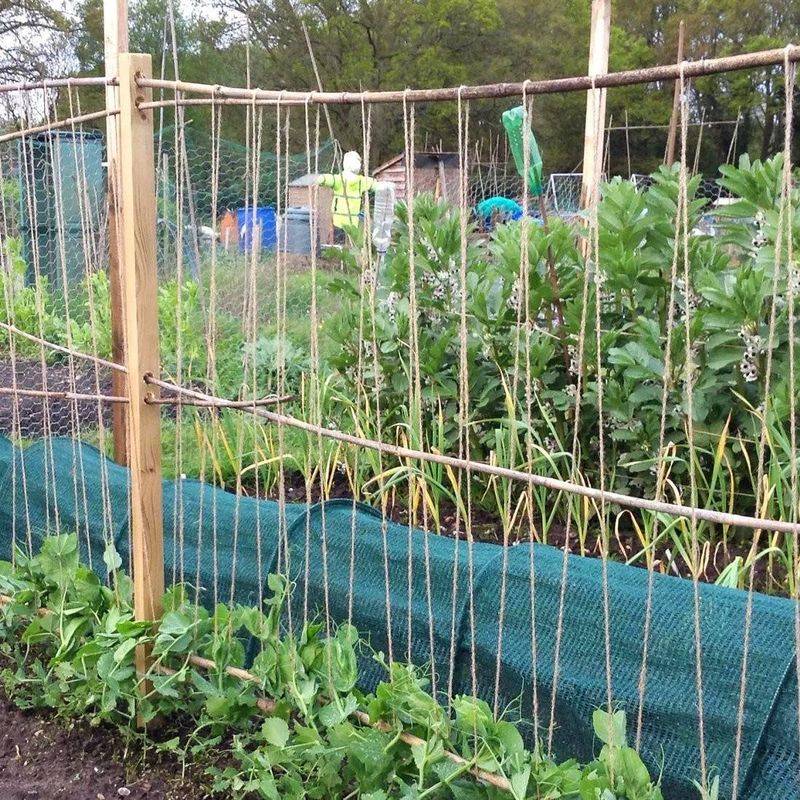
Securing plants doesn’t have to involve plastic ties. Natural fiber twine is a fantastic alternative, offering strength and flexibility.
Made from materials like jute or hemp, it’s biodegradable, meaning it won’t leave a plastic trail. It’s gentle on plants, making it perfect for tying stems or training vines.
I’ve found it to be incredibly versatile, using it for everything from garden projects to crafts. Choosing twine means embracing sustainability without sacrificing utility.
11. Terracotta Pots
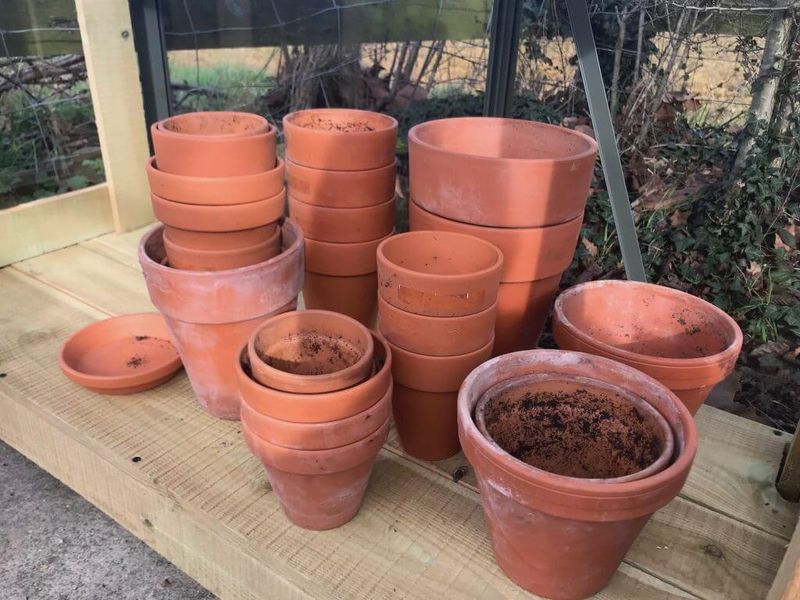
Plastic pots are so yesterday. Terracotta pots offer a breathable alternative, promoting root health with their porous nature.
They absorb excess moisture, which prevents overwatering, a common plant killer. These pots are also highly durable and have been used for centuries.
The classic look fits into any garden style, and their earthy color complements the greenery beautifully. I’m a fan of how they age, developing a charming patina over time. They’re a timeless choice!
12. Recycled Paper Plant Labels
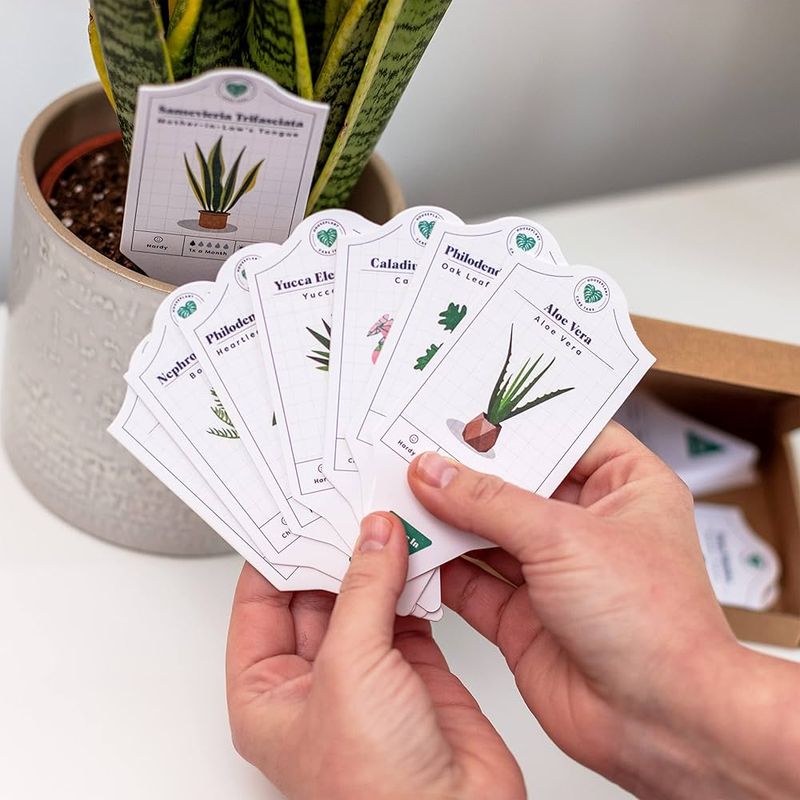
Labeling plants is necessary, but plastic labels? Not so much. Recycled paper plant labels present an eco-friendly alternative that doesn’t skimp on useability.
They’re easy to write on, and best of all, they break down naturally. No more digging up forgotten plastic labels years later! These labels are a simple switch that make a big impact.
Plus, they’re easy to replace and customize, adding a personal touch to the garden. It’s a smart choice for the mindful gardener.
13. Hemp Mulch
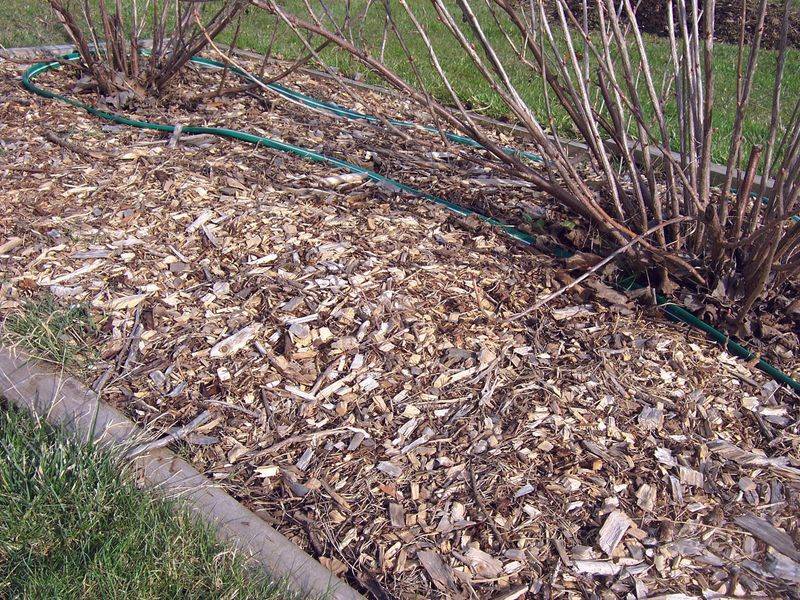
Mulching? Absolutely essential for moisture retention and weed control. Hemp mulch comes into play as a sustainable option.
It decomposes naturally, enriching the soil without adding to plastic waste. Hemp fibers are known for their durability, which means they’ll hold up well even in demanding garden situations.
The best part? It’s a renewable resource. I’ve found hemp mulch to be a reliable choice that supports plant health and environmental consciousness, all in one fell swoop.
14. Metal or Wooden Planter Boxes
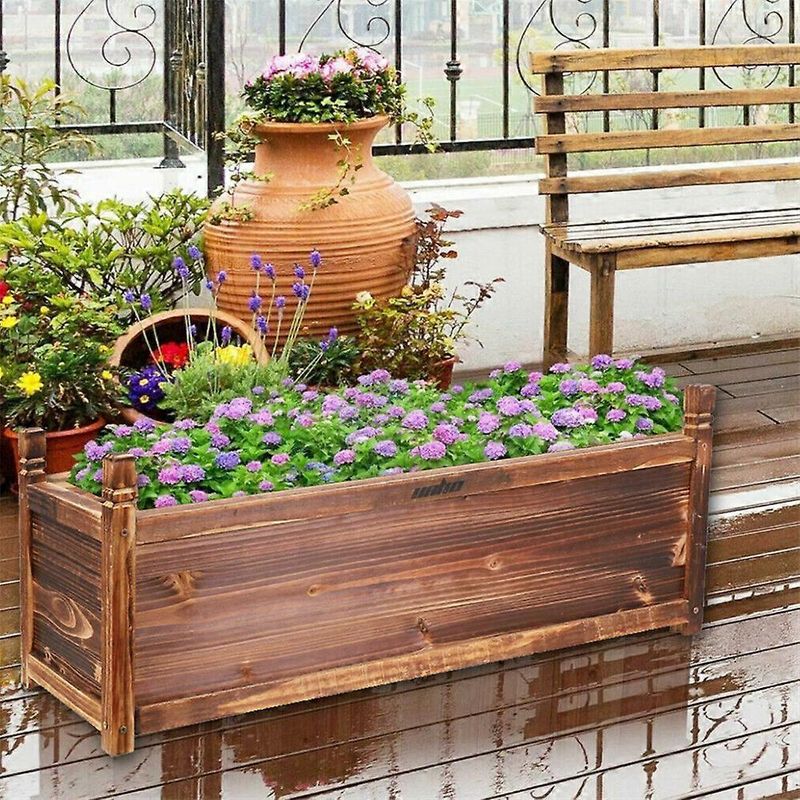
Elevate your garden game with metal or wooden planter boxes. They offer a robust alternative to plastic planters. Metal planters, often made from steel or aluminum, provide a sleek look and lasting durability.
Wooden planters add warmth and a timeless appeal. Both materials are built to last and contribute to a more sustainable gardening approach.
They’re also more stable, withstanding the elements gracefully. Why settle for plastic when you can have style and substance?
15. Compostable Weed Barriers
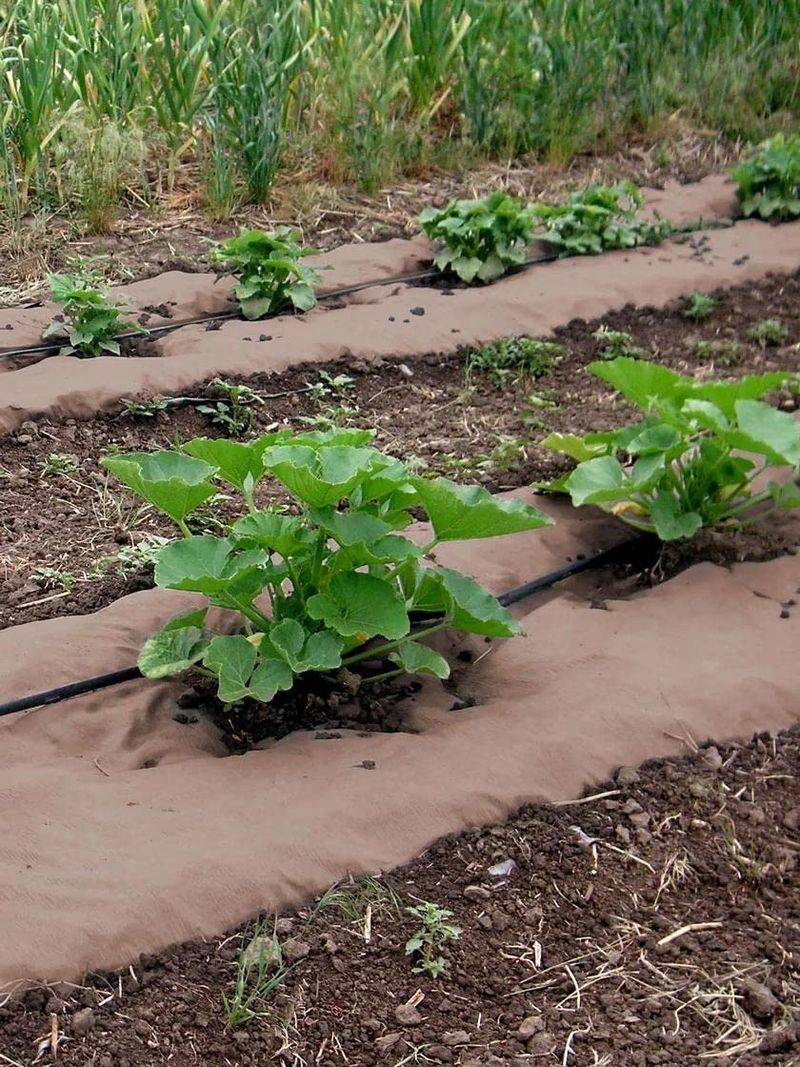
Weeds are a gardener’s nemesis, but plastic barriers are not the only solution. Compostable weed barriers are a brilliant alternative.
They suppress weeds effectively while decomposing into the soil, enriching it in the process. This approach reduces plastic waste and supports a healthier environment.
It’s amazing how such a simple switch can make such a big difference. These barriers offer the same benefits as plastic, with the added bonus of being kind to the planet. A total game-changer!
16. Organic Burlap Sacks
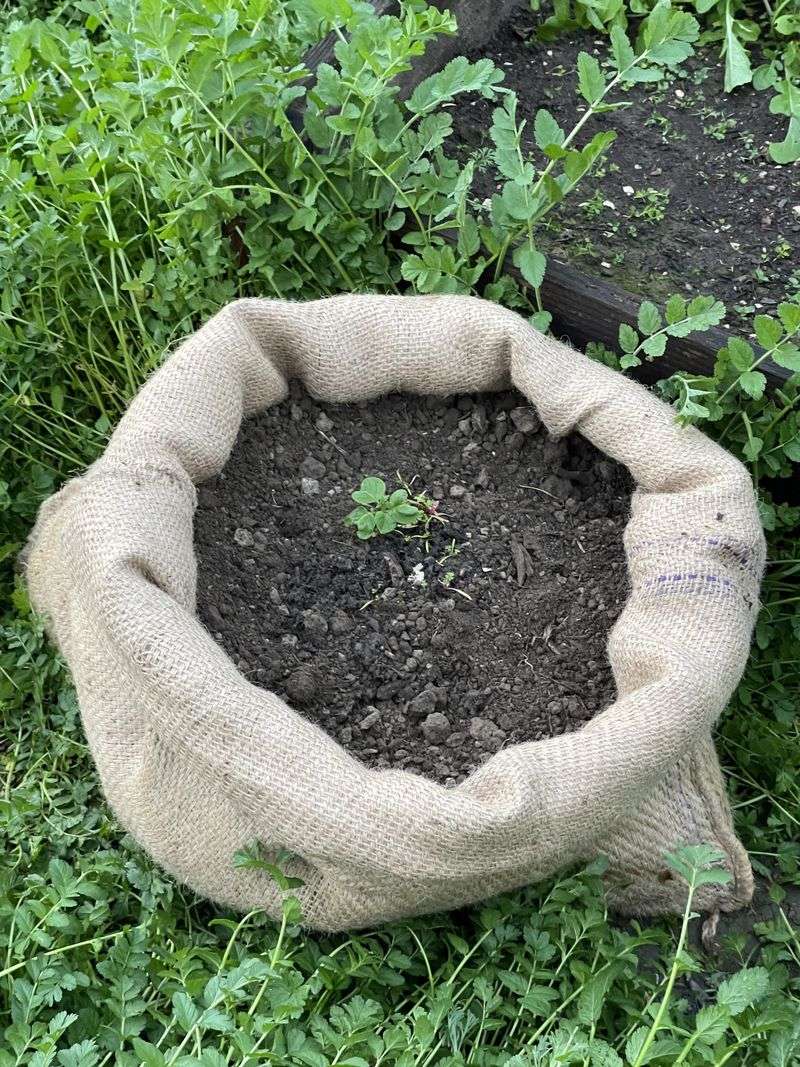
Ever considered using burlap sacks in the garden? They’re surprisingly versatile and work well as planters or for storing garden materials.
Unlike plastic, burlap is breathable and biodegradable, offering a sustainable twist to traditional gardening. The texture of burlap adds a rustic charm that’s hard to beat.
They’re robust enough to handle soil and plants, yet gentle on the environment. Isn’t it fascinating how a simple sack can transform garden aesthetics while being eco-friendly?
17. Recycled Aluminum Plant Tags
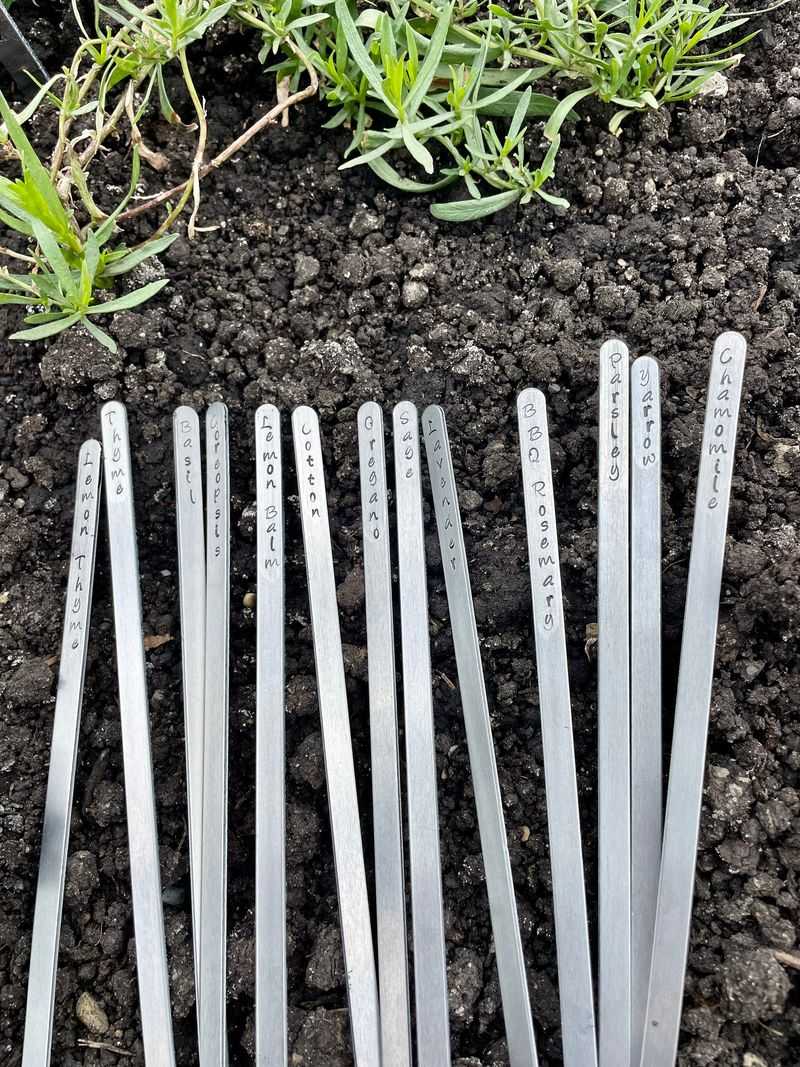
Why go for flimsy plastic tags when recycled aluminum ones are an option? They’re durable and weather-resistant, standing up to the elements with ease.
These tags can be engraved, providing a permanent way to label plants without fading or degrading. Made from recycled materials, they’re also a step towards sustainability.
They add a sleek, modern touch to any garden setting. For those of us looking to reduce waste while keeping gardens organized, these tags are a top contender.
18. Clay or Ceramic Plant Trays
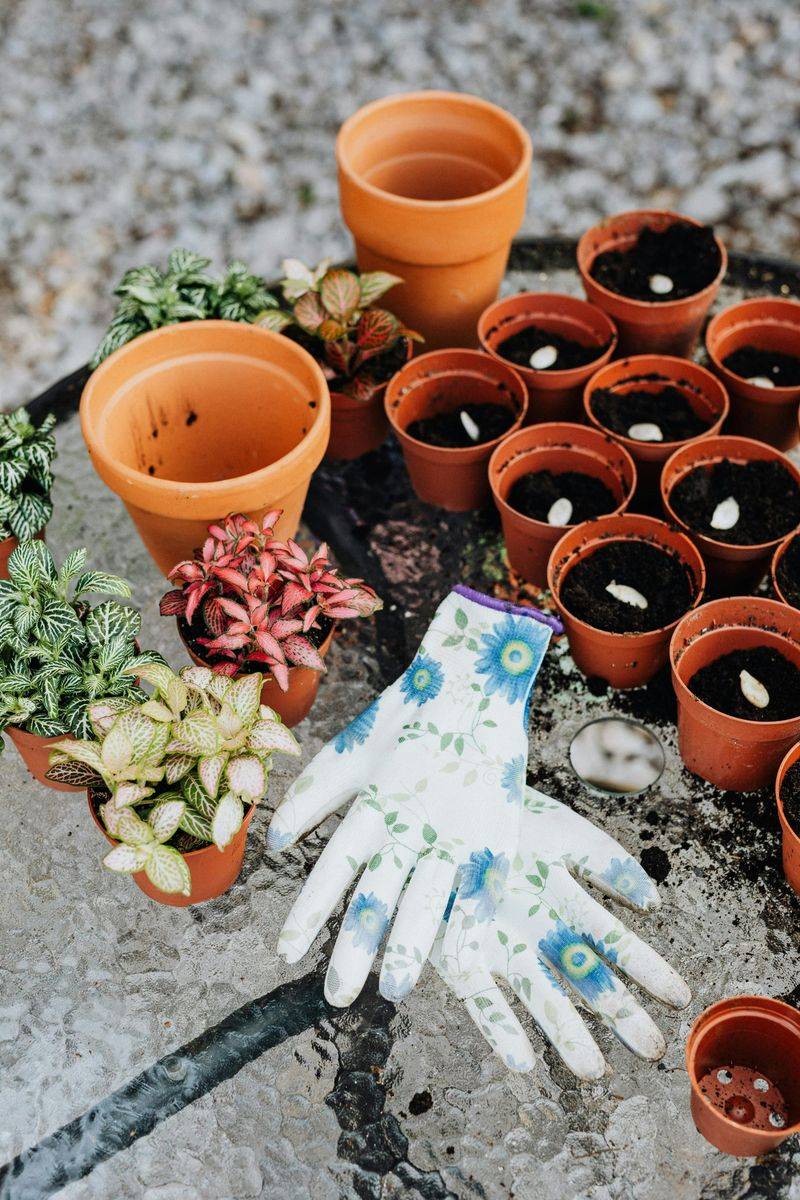
Catching excess water from pots is necessary. Clay or ceramic trays are a superior choice to plastic saucers.
They’re sturdy and aesthetically pleasing, adding an elegant touch to any plant arrangement. These trays are also durable, capable of withstanding outdoor elements.
Plus, they’re available in various designs and sizes. Choosing clay or ceramic means opting for quality and style that stand the test of time.
19. Wooden Compost Bins
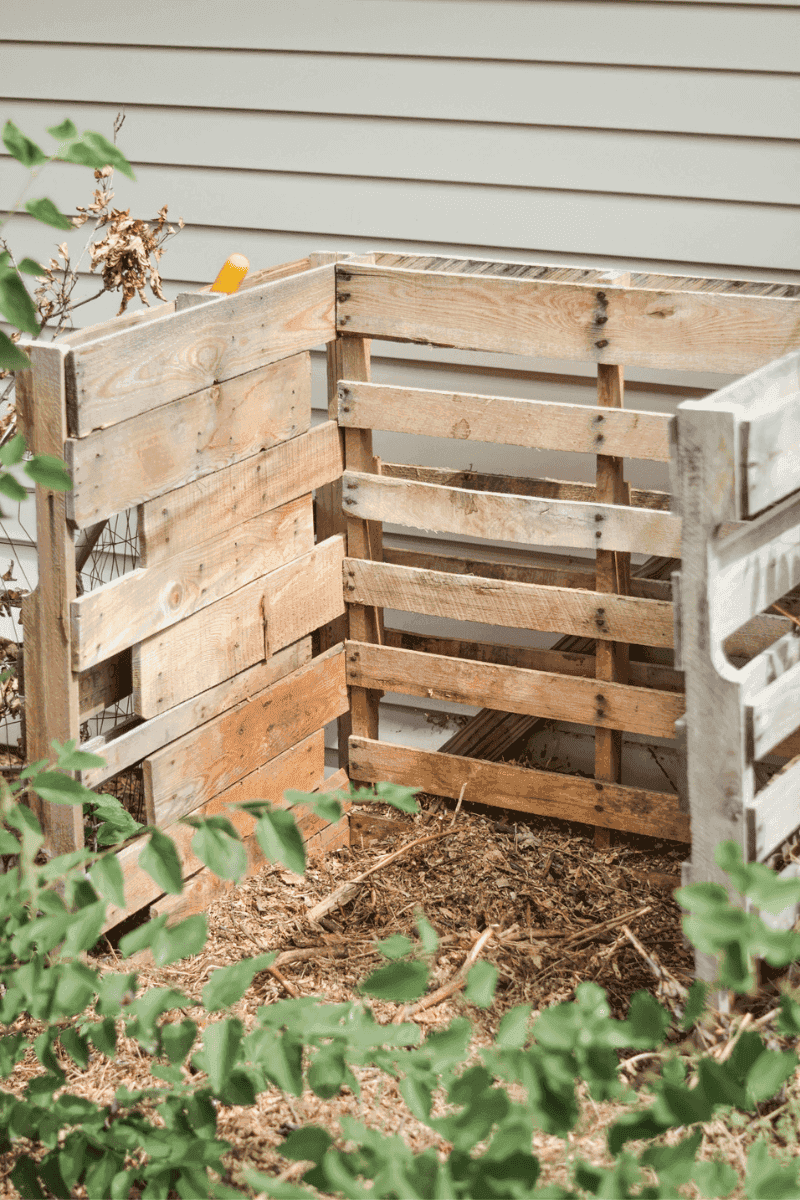
Turning kitchen scraps into garden gold is a rewarding endeavor. Wooden compost bins offer an eco-friendly alternative to plastic ones.
They’re breathable, allowing for efficient decomposition while keeping pests at bay. The natural materials blend well with outdoor settings, providing a more harmonious look.
Wooden bins are sturdy and built to last, making them an investment worth considering. I find them not only practical but also stylish, enhancing the overall garden aesthetic.
20. Coconut Shell Pots
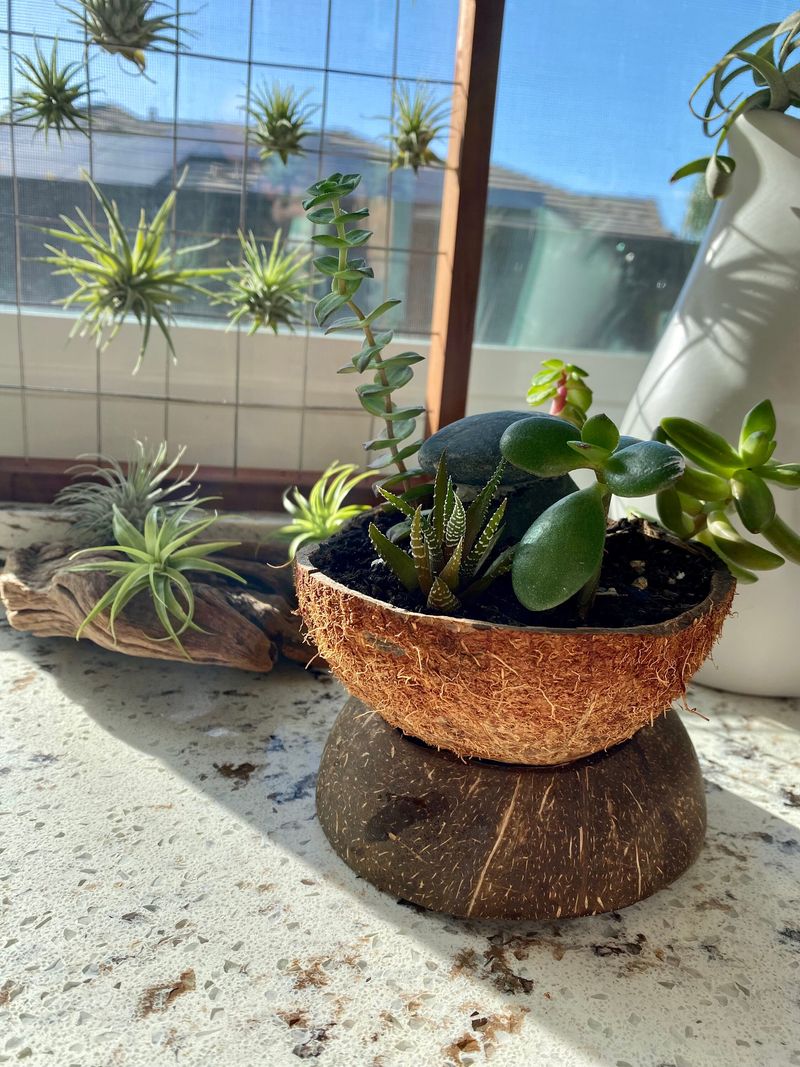
I’ve discovered coconut shell pots, and they’re fabulous! These unique pots are made from discarded coconut shells, turning waste into a gardening treasure.
They’re naturally water-resistant and add an exotic touch to any garden setting. Unlike plastic, coconut shell pots biodegrade, leaving no trace behind.
They’re surprisingly sturdy, handling soil and water with ease. Using these pots is a small yet impactful step towards more sustainable gardening. Plus, they’re a conversation starter!
21. Recycled Wood Garden Fencing
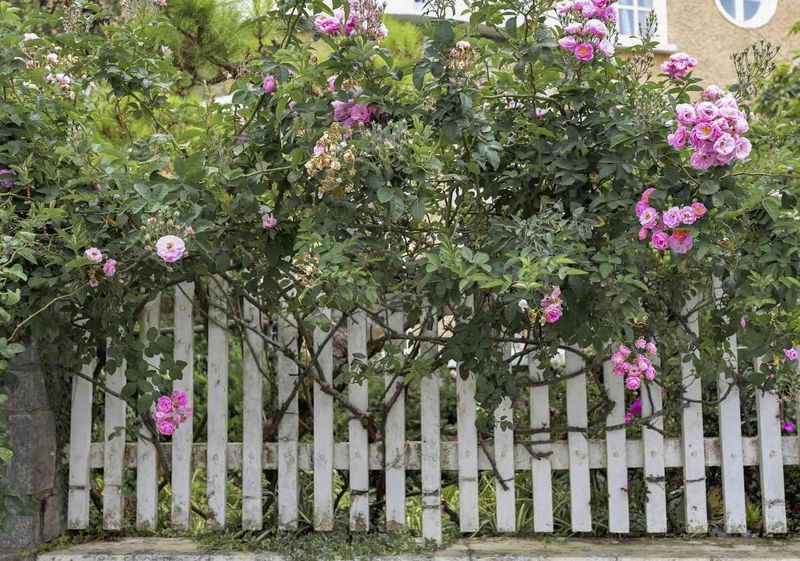
Fencing defines garden borders but doesn’t need to be plastic. Recycled wood fencing is an eco-friendly and stylish option.
It offers the durability needed to withstand the elements while boasting a natural aesthetic that complements any garden. Using recycled materials means reducing waste and promoting sustainability.
This type of fencing also provides privacy and security, making it a practical choice. It’s fascinating how something recycled can bring so much character to a garden.
22. Natural Rubber Hose
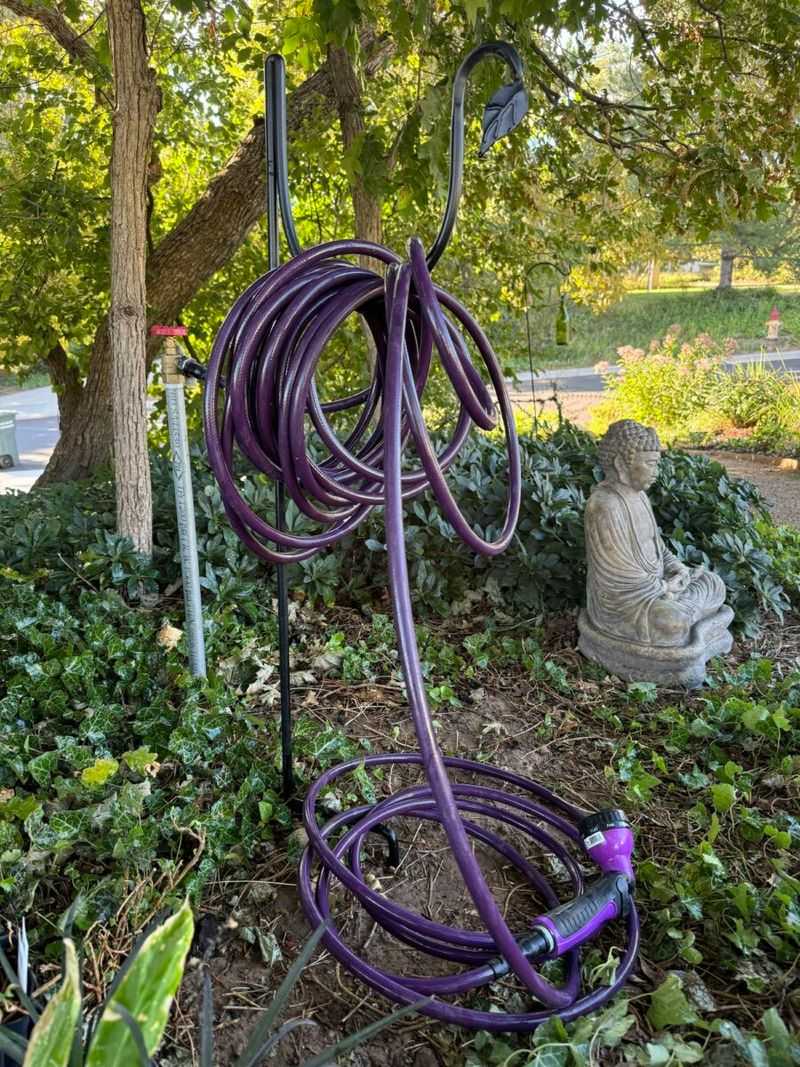
Watering the garden just got more eco-friendly with natural rubber hoses. Unlike plastic hoses, these are biodegradable and free from harmful chemicals.
They’re flexible, making them easy to maneuver around the garden. Natural rubber offers durability, ensuring the hose withstands regular use without cracking.
They’re also resistant to UV light, increasing their lifespan. Choosing a natural rubber hose is a step towards a more sustainable garden, keeping it healthy without compromising on quality or function.
23. Stone or Ceramic Bird Baths
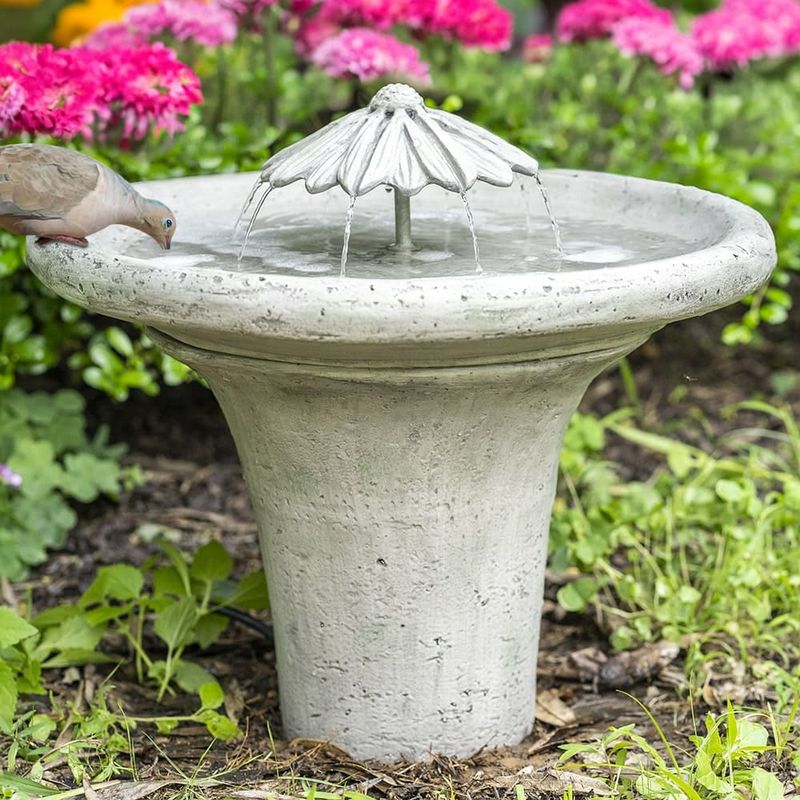
Birds love a place to splash around, but plastic isn’t the only option. Stone or ceramic bird baths add elegance and durability to any garden.
Have you ever noticed how they blend seamlessly with the natural surroundings? These materials offer longevity and won’t degrade over time like plastic.
They provide a cool spot for birds to enjoy, which adds life and movement to the garden. Choosing natural materials means embracing sustainability while enhancing garden charm.
24. Cotton Garden Gloves
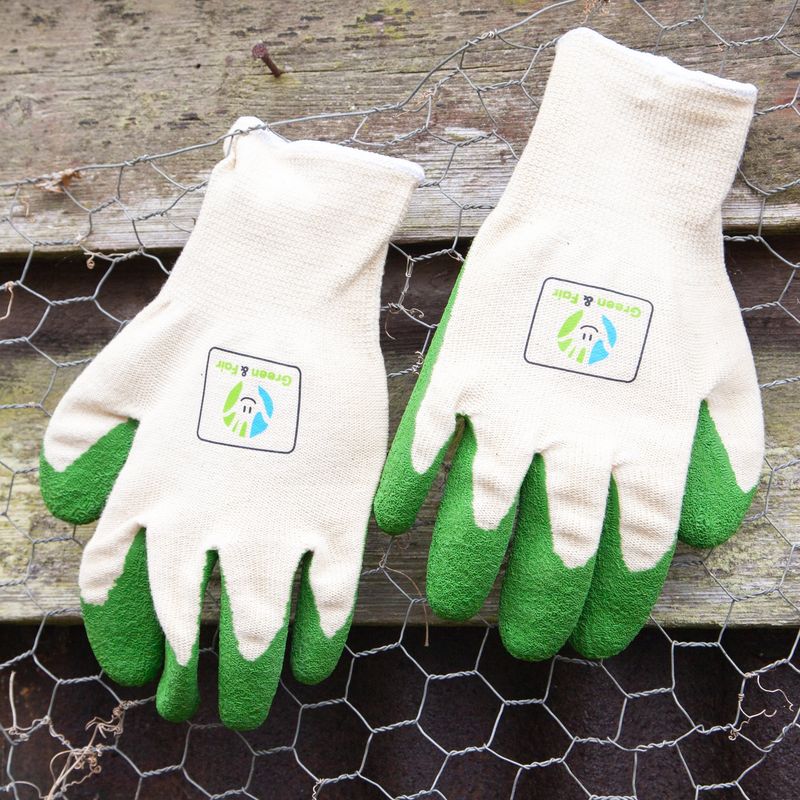
Gardening gloves are essential, but plastic ones? Not necessarily. Cotton garden gloves offer comfort and breathability, making them an excellent alternative.
They’re perfect for all gardening tasks, from planting to pruning. Cotton gloves are washable and reusable, reducing the need for disposable options.
They’re also gentle on the skin, allowing for extended use without irritation. Choosing cotton over plastic gloves is a simple way to be kinder to the environment while keeping hands protected.
25. Recycled Glass Garden Decorations
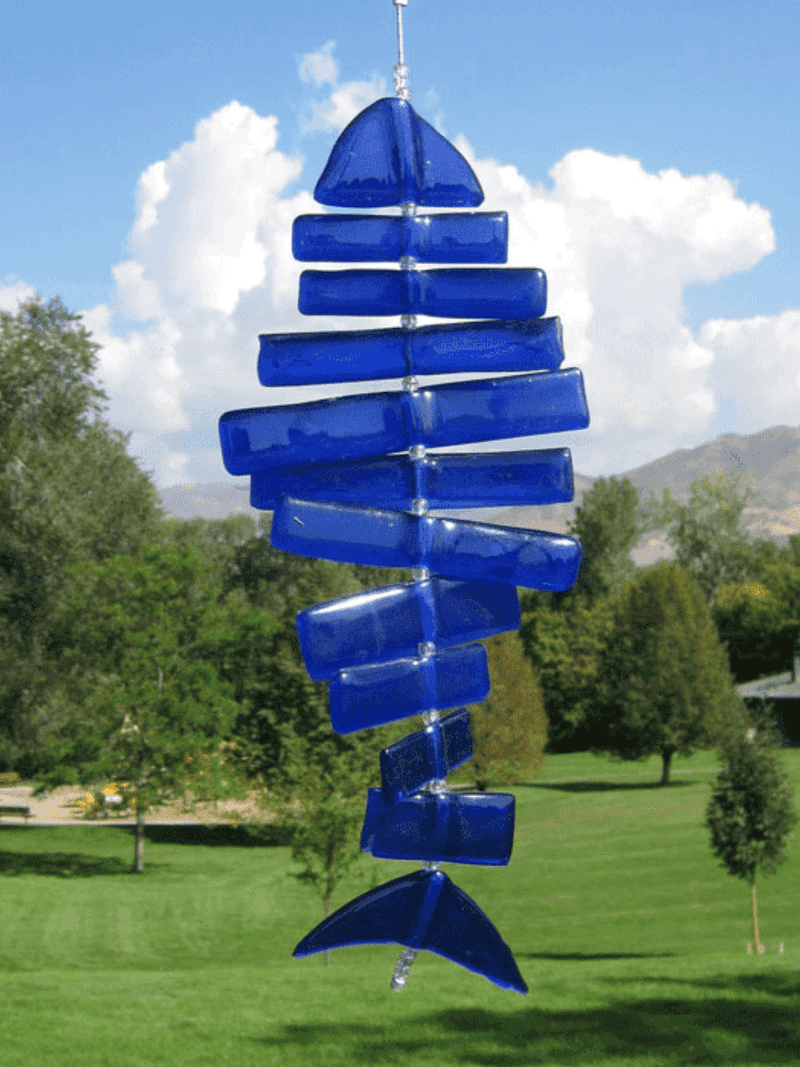
Decorating a garden is fun, and recycled glass decorations add creativity without the plastic footprint.
They come in various forms, from ornaments to wind chimes, and bring an artistic flair. These decorations are durable and weather-resistant, providing long-lasting beauty.
They offer a sustainable way to enhance the garden’s aesthetic. Embracing recycled glass means enjoying art and sustainability hand in hand.
26. Wool Growing Mats
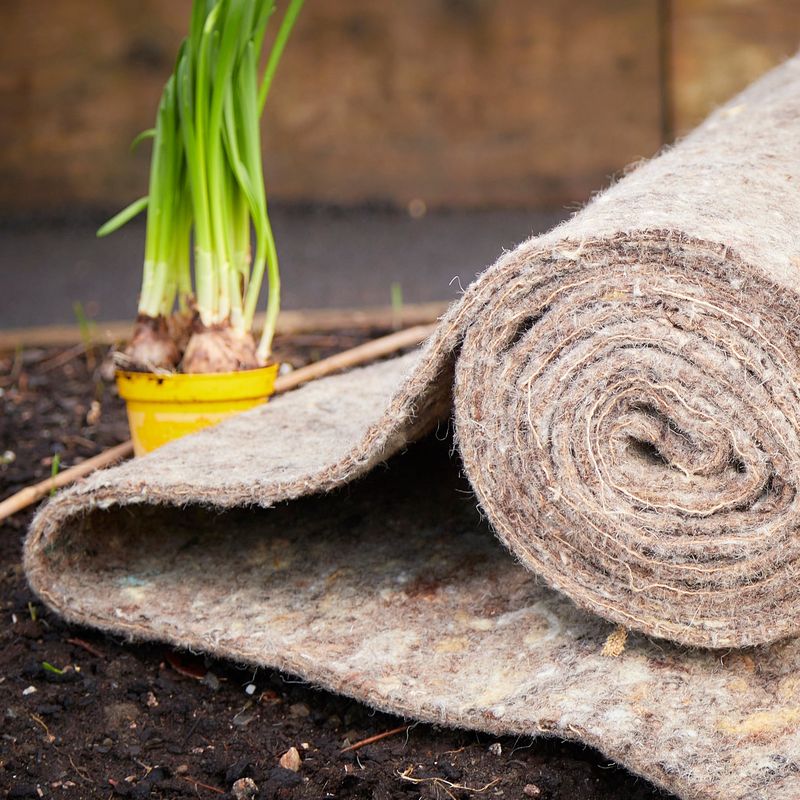
Starting seeds or lining pots? Wool growing mats are ideal. They’re biodegradable and offer excellent moisture retention.
Made from natural fibers, they decompose into the soil, enriching it over time. Wool mats are also breathable, supporting healthy root development.
This choice supports sustainability while promoting plant health. It’s a smart, eco-conscious addition to any gardener’s toolkit.
27. Terracotta Plant Saucers
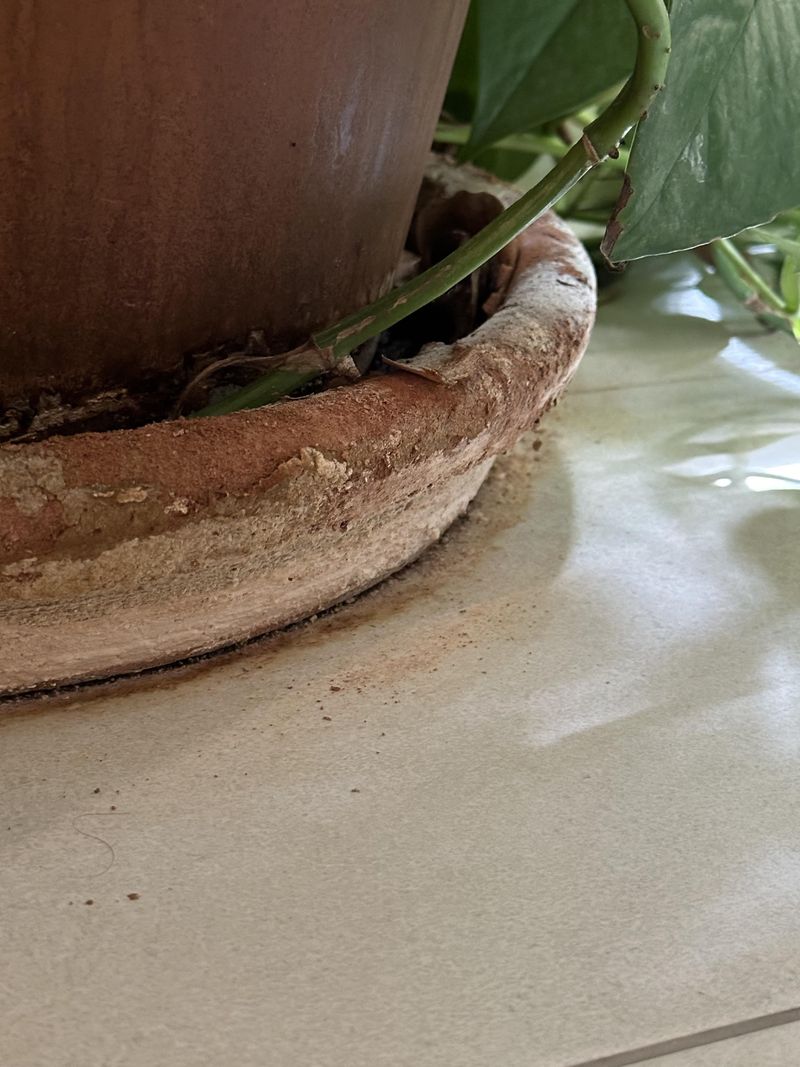
Catching extra water under pots is crucial, and terracotta saucers fit the bill perfectly. They’re sturdy and match terracotta pots seamlessly, enhancing the garden’s cohesive appearance.
These saucers absorb excess moisture, preventing waterlogging and root rot. Their durability makes them a lasting choice.
Choosing terracotta over plastic means opting for a timeless, sustainable option that keeps plants healthy while looking classy.
28. Eco-Friendly Fertilizer Bags
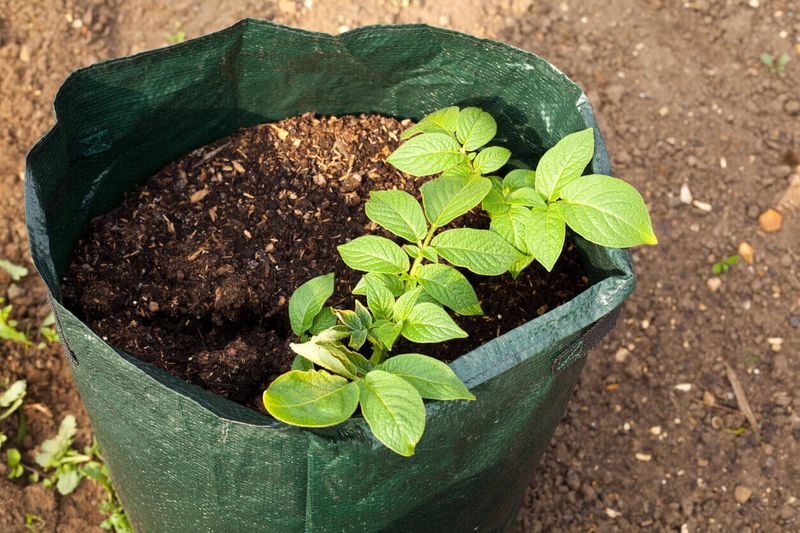
Transporting and storing fertilizer doesn’t have to involve plastic. Eco-friendly fertilizer bags are made from biodegradable materials, reducing waste.
They’re sturdy enough to hold the weight of fertilizers while being gentle on the environment. The bags break down over time, leaving no trace.
This switch from plastic to biodegradable materials supports sustainability in a simple yet effective way. It’s a small change with a big impact, contributing to a greener gardening experience.
29. Recycled Fabric Planters
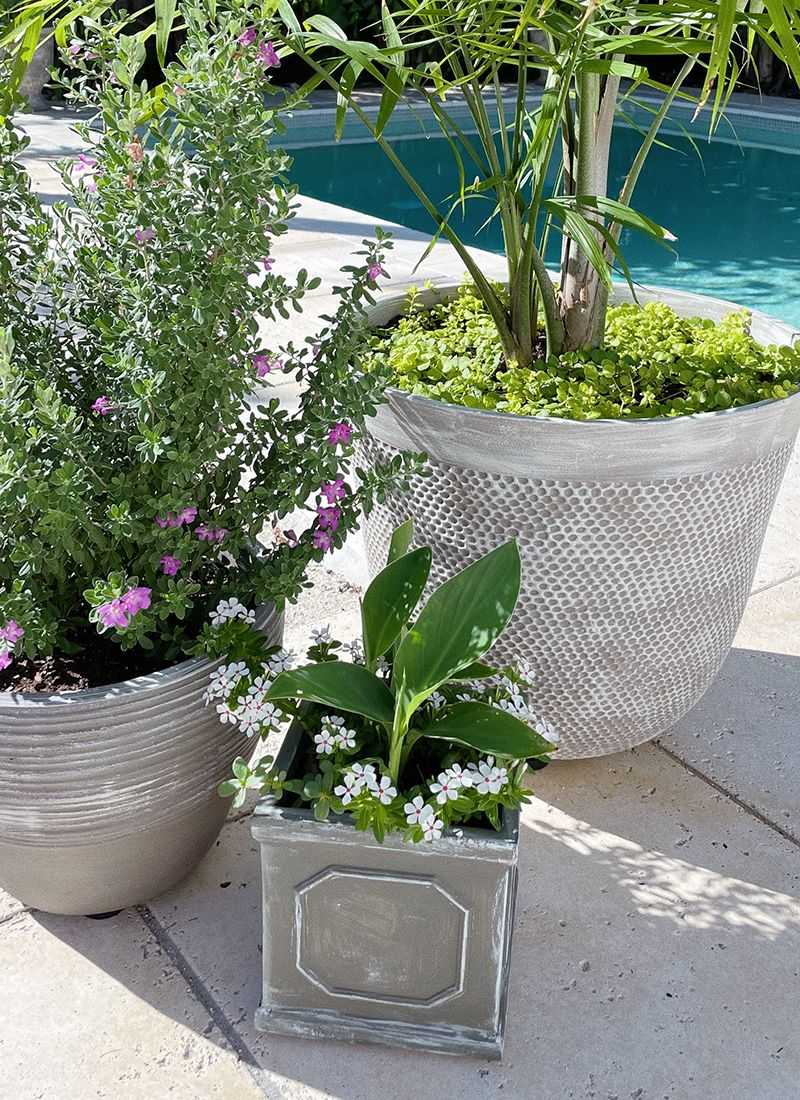
Fabric planters made from recycled materials are a fantastic alternative to plastic pots. They’re flexible, allowing roots to breathe and grow healthy.
These planters are often lightweight and easy to move around, which is a plus for rearranging plants. Using recycled fabric means reducing waste and promoting a circular economy.
The colors and patterns add a playful element to the garden. It’s a stylish option that doesn’t compromise on plant health.
30. Biodegradable Plant Supports
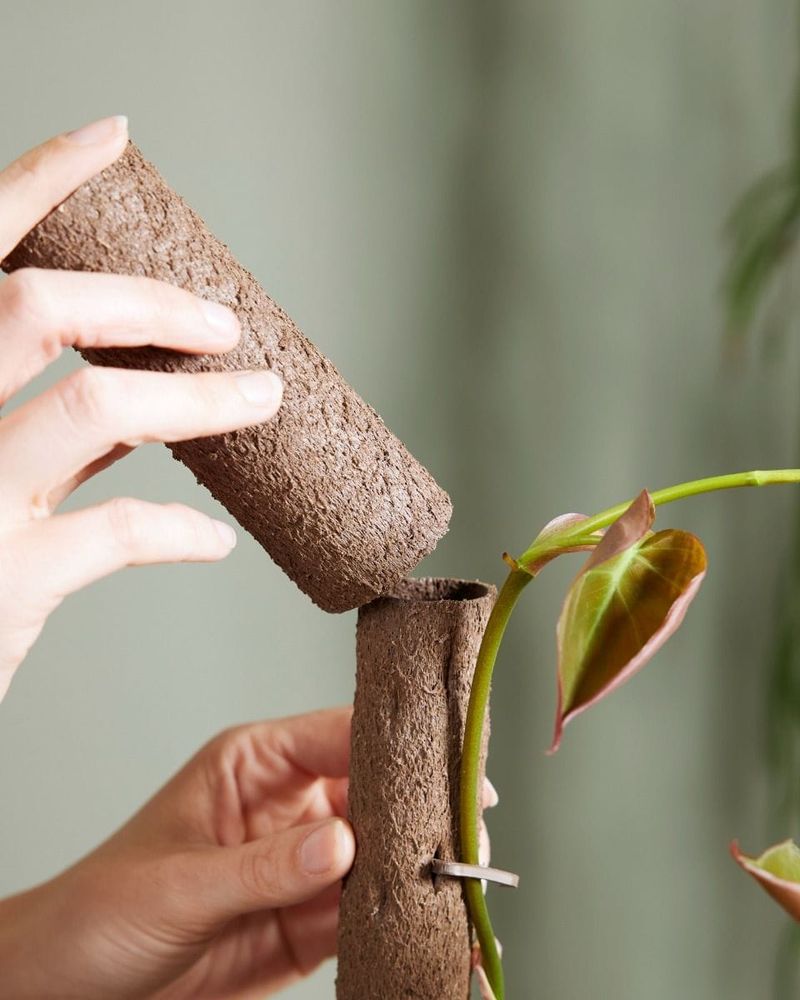
Keeping plants upright is crucial, but plastic supports aren’t the only solution. Biodegradable supports offer strength and break down naturally over time.
Isn’t it cool how they provide the necessary support without leaving behind waste? These supports integrate seamlessly into the garden environment, offering an eco-friendly alternative.
They’re perfect for supporting everything from tomatoes to delicate flowers. Embracing biodegradable options means supporting plant growth sustainably.

